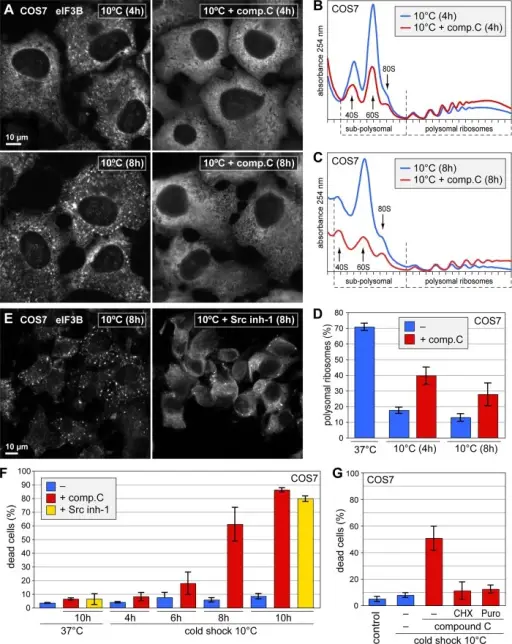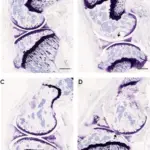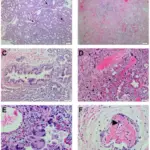Shock is a life-threatening manifestation of circulatory failure.
Types of shock include:
- Hypovolemic shock
- Septic shock
- Cardiogenic shock
- Neurogenic shock
What is Hypovolemic Shock?
Hypovolemic shock results from low cardiac output due to loss of blood or plasma volume.
What is the Pathology of Hypovolemic Shock?
The pathology of hypovolemic shock is:
-Etiology: The cause of hypovolemic shock is hemorrhage or fluid loss from severe burns
-Genes involved: None.
-Pathogenesis: The sequence of events that lead to hypovolemic shock involves a decrease of intravascular volume. Decrease of intravascular volume may be due to blood loss or extracellular fluid loss.
How does Hypovolemic Shock Present?
Patients with hypovolemic shock typically affect males and females present at an age range of 45 and above. The symptoms, features, and clinical findings associated with hypovolemic shock include orthostatic hypotension, light headedness, rapid heart rate, and muscle cramps.
How is Hypovolemic Shock Diagnosed?
Hypovolemic shock is diagnosed through observation and examination.
How is Hypovolemic Shock Treated?
Hypovolemic shock is treated with intravenous fluids and antibiotics
What is the Prognosis of Hypovolemic Shock?
The prognosis of hypovolemic shock is poor. Any shock is a medical emergency characterized by a high mortality rate.
What is Septic Shock?
Septic Shock results from arterial vasodilation and venous blood pooling that stems from the systemic immune response to microbial infection.
What is the Pathology of Septic Shock?
The pathology of septic shock is:
-Etiology: The cause of septic shock is primarily bacteria.
-Genes involved: None.
-Pathogenesis: The sequence of events that lead to septic shock is mediated by inflammatory cytokines.
How does Septic Shock Present?
Patients with septic shock typically affect males present at the age range of 53-77 years. The symptoms, features, and clinical findings associated with septic shock include hypotension, altered mental state, diarrhea, nausea, vomiting, cold, clammy, and pale skin.
How is Septic Shock Diagnosed?
Septic shock is diagnosed clinically. Microbiology tests on the patient’s blood may help determine the cause of the diagnosis.
How is Septic Shock Treated?
Septic shock is treated with intravenous fluids, antibiotic administration, and early goal-directed therapy.
What is the Prognosis of Septic Shock?
The prognosis of septic shock is poor with mortality rates greater than 35%.
What is Systemic Inflammatory Response Syndrome?
Systemic inflammatory response syndrome (SIRS) is a clinical syndrome characterized by systemic inflammation and widespread tissue injury.
What is the Pathology of Systemic Inflammatory Response Syndrome?
The pathology of systemic inflammatory response syndrome is:
-Etiology: The cause of systemic inflammatory response syndrome may be related to infection, pancreatitis, or organ injury.
-Genes involved: None.
-Pathogenesis: The sequence of events that lead to systemic inflammatory response syndrome involves the release of acute-phase reactants, which perpetuate a dysregulated cytokine storm that can cause a massive inflammatory cascade, end-organ dysfunction, and even death.
How does Systemic Inflammatory Response Syndrome Present?
Patients with systemic inflammatory response syndrome are typically patients with complex medical histories, or pancreatitis that have acute drop in blood pressure, fever, and altered mental status.
How is Systemic Inflammatory Response Syndrome Diagnosed?
Systemic inflammatory response syndrome is diagnosed based on clinical criteria.
How is Systemic Inflammatory Response Syndrome Treated?
Systemic inflammatory response syndrome is treated with an fluid replacement, and medical management of accompanying symptoms.
What is the Prognosis of Systemic Inflammatory Response Syndrome?
The prognosis of systemic inflammatory response syndrome is poor.
What is Multiple Organ Dysfunction?
Multiple organ dysfunction (MOD) is the development of potentially reversible physiologic damage to two or more organ systems.
What is the Pathology of Multiple Organ Dysfunction?
The pathology of multiple organ dysfunction is:
-Etiology: The cause of multiple organ dysfunction is typically infection, hypoperfusion, or organ trauma.
-Genes involved: None.
-Pathogenesis: The sequence of events that lead to multiple organ dysfunction typically includes sepsis or systemic inflammatory response syndrome.
How does Multiple Organ Dysfunction Present?
Patients with multiple organ dysfunction typically affect males and females present at the age range of 40 and above. The symptoms, features, and clinical findings associated with multiple organ dysfunction include an altered mental state, decrease in renal perfusion, and respiratory issues.
How is Multiple Organ Dysfunction Diagnosed?
Multiple organ dysfunction is diagnosed clinically.
How is Multiple Organ Dysfunction Treated?
Multiple organ dysfunction is treated with organ transplant and supportive care.
What is the Prognosis of Multiple Organ Dysfunction?
The prognosis of multiple organ dysfunction is poor.
What is Cardiogenic Shock?
Cardiogenic shock results from low cardiac output due to myocardial pump failure.
What is the Pathology of Cardiogenic Shock?
The pathology of cardiogenic shock is:
-Etiology: The cause of cardiogenic shock is myocardial damage, injury, or compression.
-Genes involved: None.
-Pathogenesis: The sequence of events that lead to cardiogenic shock cardiac issues that cause the heart not to effectively pump blood.
How does Cardiogenic Shock Present?
Patients with cardiogenic shock typically affect males present at the age range of 58–79 years. The symptoms, features, and clinical findings associated with cardiogenic shock include hypotension, a weak rapid pulse, cyanotic skin, and breathing changes.
How is Cardiogenic Shock Diagnosed?
Cardiogenic shock is diagnosed through cardiovascular workup which may include a physical exam, echocardiography, and an echocardiogram.
How is Cardiogenic Shock Treated?
Cardiogenic shock is treated with fluid infusions or inotropic medications.
What is the Prognosis of Cardiogenic Shock?
The prognosis of cardiogenic shock is poor.
What is Neurogenic Shock?
Neurogenic shock results from loss of vascular tone associated with anesthesia or secondary to a spinal cord injury.
What is the Pathology of Neurogenic Shock?
The pathology of neurogenic shock is:
-Etiology: The cause of neurogenic shock is autonomic dysregulation following spinal cord injury, usually as a result of to trauma.
-Genes involved: None.
-Pathogenesis: The sequence of events that lead to neurogenic shock includes the injury to the spinal cord above the level of T6 which results in hemodynamic changes.
How does Neurogenic Shock Present?
Patients with neurogenic shock are typically males or females 15 years of age or older. The symptoms, features, and clinical findings associated with neurogenic shock include low heart beats, hypotension, and temperature dysregulation.
How is Neurogenic Shock Diagnosed?
Neurogenic shock is diagnosed via CT scan, MRI, hemodynamic monitoring, and clinical exam.
How is Neurogenic Shock Treated?
Neurogenic shock is treated with hemodynamic stabilization, intravenous fluid resuscitation, vasopressors, and inotropes.
What is the Prognosis of Neurogenic Shock?
The prognosis of neurogenic shock is good if properly managed. The overall prognosis depends on the extent of spinal cord injury and response to treatment.
| Type of Shock | Clinical Examples | Principal Pathogenic Mechanisms |
| Cardiogenic | Myocardial infarction, Rupture of the Ventricular Wall, Arrythmia, Pulmonary Embolism, Cardiac Tamponade | Failure of myocardial pump |
| Hypovolemic | Blood Loss, Burns, Diarrhea, Vomiting | Inadequate blood or plasma volume |
| Septic | Infections | Peripheral vasodilation |
| Neurogenic | Spinal Cord Injury or Compression | Loss of vascular tone |



